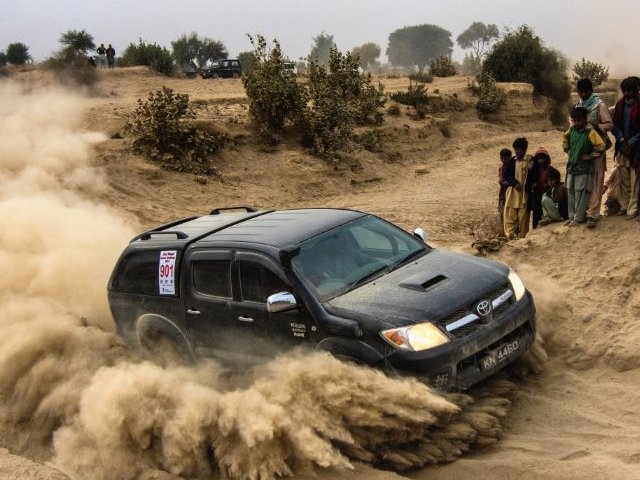
Travelling to the province for the first time, driving by sparse greenery that burst into fields of crops at random intervals, the most dominant aspect was the brown, lonely landscape. Truck stops broke the monotony every now and then, with cats and dogs aimlessly crawling around the scattered tables and parked trucks, whose drivers take a tea break.
The 10th Jhal Magsi rally was the perfect opportunity to not only witness how far motorsports in Pakistan has come, but was also a chance to experience the vast differences within the same homeland; the bumps – literal and figurative – that came one after the other as the hours ticked by on the long journey there.
The desert spoke as the winds blew, beckoning for help, asking for mercy. But amidst that stood local men and children at different parts of the rally track, wrapped in colourful shawls with sand-streaked hair, chewing on sugar cane straight from the crop, waiting in anticipation for the race to start.
"This rally is what gave Jhal Magsi its identity," said one of the organisers. “There is a lack of entertainment for the people around here so for them, this is a big day."
The locals nodded in agreement, once again smiling away. In a place which has little to offer, this was their time, their moment. It was clear how much they had been waiting to feel the thrill as the cars sped by.
"Meri speed check kero [check out my speed]," screamed one of the locals excitedly as he tried to race his bike over the bumpy, stone-covered terrain prior to the race.
However, the waiting faces were tested some more. The fog had the final say, covering the horizon menacingly, delaying the rally by a couple of hours and cutting the 200km race short to 119km.
There was confusion and haste, and a change of plans. People shuffled around; the drivers had a different starting point now but everyone at least knew who was going to set out, in full force, hoping to take advantage of a first-place start: Ronnie Patel. Just the day before, the qualifiers had determined the line-up.
‘Ronnie nikal gaya, Ronnie nikal gaya’, screamed the walkie-talkie and cell phone exchanges as soon as the race began. Everyone had picked their spot where they wanted to watch from, where they wanted to hear the crunching of the gravel, see the trail of dust left behind as the cars lurched forward.
“The first person to take off gets the advantage of the virgin track, undisturbed by other sets of wheels,” explained a regular participator in the race.
Here it is not always the results that matters. What matters was the track, what it represents and the hopes that lay within it.
“It’s truly a driver’s paradise,” said Patel, who, as fates spoke, was unable to finish the race due to an accident, a sad end as he seemed to be the expectant winner.
Patel has been part of the motorsports scene since 1979, predominantly in Pakistan, but he has also experienced racing in Dubai twice.
“This 220km track has every kind of conceivable terrain on earth; rocky tracks, stones, rivers, canals, hard surface, soft kind of sand, sand dunes. I think this is the only track in the world that has been graded, which is quite expensive, but it ensures that there aren’t any sudden ditches.”
How does one take up such an intense sport and commit? It’s neither easy nor cheap, but Patel had an easy answer to it.
“It has to be a part of your system right from the beginning and you have to be absolutely driven to get through the challenge,” he said. “People fear for your safety but honestly it’s not the track that will break you, it’s that one wrong decision that may ruin everything.”
As he spoke of the funds required, he indirectly made it clear that only those who could afford it had a chance. “It’s definitely an expensive sport given that we don’t have sponsors for individual drivers here in Pakistan, and if you are in the ‘A’ prepared category like me, you need to be on top of your game and spend the right way to prepare the kind of car that will get you through to the finish line first.”
While rally drivers do get most of the credit, their co-drivers can be termed as the ‘unsung heroes’.
Hozaifa Hashim, co-driver to category ‘A’ winner Zafar Magsi, explains their role. “We make notes prior to the race, mark the danger points and warn the driver, especially while going in blind [sand blast from the car before you],” said Hashim, while highlighting on the support, trust and understanding the two drivers had to have between them. “Navigating isn’t our only job though. We tend to study the car and any issues that it may have so that during the race if something goes wrong, we can attend to the problem straight away.”
While talking about this year’s race, he rued the loss of the first section to the fog, which was a true test of a driver’s skill, an interesting and challenging piece of land where the Red Bull speed trap had initially been set to record the fastest time as each car maneuvered through the tricky terrain. Unfortunately the ‘surprise spot’ where they were to be timed had to be shifted.
Despite the setbacks, many of the cars passing through the finish line were greeted with celebratory gunfire.
Not just a man’s turf
It wasn’t long ago that racing was an all-man’s club. However, change has been in the air.
Patel’s wife Tushna, who has been racing for some time, and a newcomer Maliha Elahi, participated in the women’s category, facing the hardships of the course head on.
Tired, dishevelled and barely able to speak after a mentally and physically challenging rally, Maliha talked about her experience as a whole.
“It was my first time racing here and I had my 22-year-old son Abdullah co-drive the jeep,” she said. “I wasn’t racing against anyone; I was racing against myself, hoping to beat my personal best time.
“We were welcomed and treated well and given the moral support to get through such a challenge. However, it was also difficult, being a woman, because of the kind of society we have as everyone keeps staring.
“When I was in the car I felt like either I was a caged monkey or Princess Diana,” Maliha, who took this up as a hobby, chuckled. “We are from the same county but lead such different lives, it’s kind of sad really.”
At the end…
The eerie darkness of the night blanketed itself over the mountains and the valley, over the lonesome mud huts with its lonesome people left to face another bumpy day.
It was 10 years ago when three friends came up with the idea of holding a rally here; it was 10 years ago when Jhal Magsi was given a glimmer of hope. And now with everything done and dusted, its people will wait another year to feel the place come alive again.
Like Sports on Facebook, follow @ETribuneSports on Twitter to stay informed and join in the conversation.
COMMENTS (1)
Comments are moderated and generally will be posted if they are on-topic and not abusive.
For more information, please see our Comments FAQ












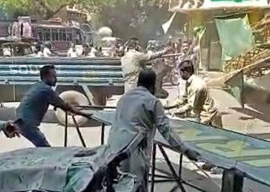
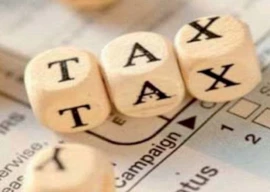
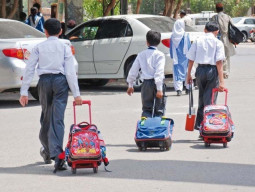

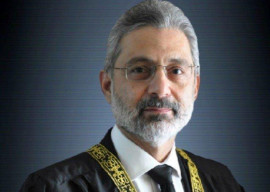
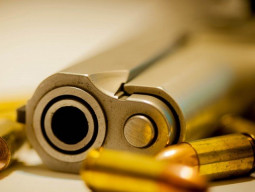





















Very Nice piece by Mariam Gabaji, I hope you will do such type more, God bless you